It is hard to describe a human life in a few hundred words. Speaking about one of the oldest media outlets in Bulgaria it looks impossible to sum up its multifaceted history in a concise text. For all its 82 years of existence Radio Bulgaria has long stories to tell – paying homage at least to a constellation of personalities who devoted their lives to it.
More than eight decades ago, back in 1936, the first pilot broadcasts started from Radio Sofia, the successor of the public Rodno Radio founded in 1930. Shortly after that Radio Sofia started broadcasting to various regions of the world. Today these programs are united under the brand Radio Bulgaria - the international service of the Bulgarian National Radio.

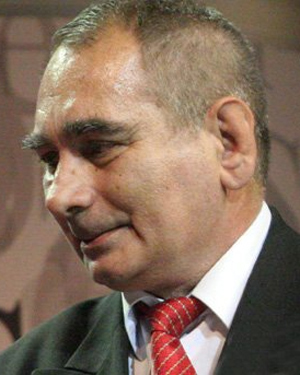 As famous radio historian Prof. Veselin Dimitrov (1938 – 2009) from the Faculty of Journalism and Mass Communication at Sofia University once said:
As famous radio historian Prof. Veselin Dimitrov (1938 – 2009) from the Faculty of Journalism and Mass Communication at Sofia University once said:
“Seeing that across the world shortwave transmissions were becoming popular, a group of Bulgarian enthusiast technicians decided to build a shortwave transmitter for experimental purposes and to air Bulgarian language emissions abroad. Initially they were punished for this idea but were later awarded with orders for their daring project. On the other hand, Bulgaria was in international isolation in the aftermath of the Treaty of Neuilly and the political leaders of the country – cabinet ministers and people’s deputies in parliament – were aware of the need to make the Bulgarian voice heard in the world. Not accidentally, the first shortwave broadcasts of Radio Sofia as it was called back then were in Bulgarian. The radio had feedback from many places where Bulgarian emigrants lived including mail from Australia.”
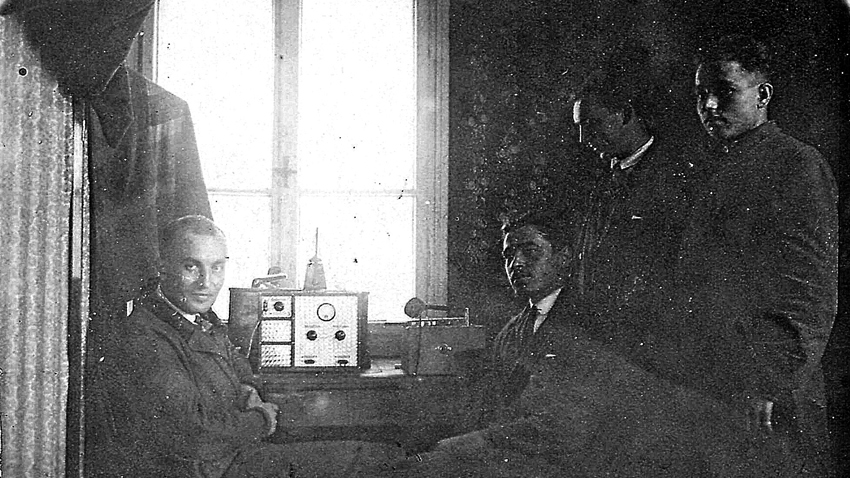
 Regular broadcasts from Bulgaria to the world started in April 1936, and from 24 May – the Day of the Slavonic Alphabet and of Bulgarian Education and Culture they were aired under a fixed schedule. Broadcasts in Esperanto opened in 1936 followed by regular programs in French, German, English and Italian. The program in Italian for example, was prepared by young Petar Ouvaliev (1915 – 1998) who later became a legend at the BBC, an intellectual with encyclopedic knowledge and interests:
Regular broadcasts from Bulgaria to the world started in April 1936, and from 24 May – the Day of the Slavonic Alphabet and of Bulgarian Education and Culture they were aired under a fixed schedule. Broadcasts in Esperanto opened in 1936 followed by regular programs in French, German, English and Italian. The program in Italian for example, was prepared by young Petar Ouvaliev (1915 – 1998) who later became a legend at the BBC, an intellectual with encyclopedic knowledge and interests:
„This radio seemed like something absolutely incredible. It was born to convince us that it is the hub of the expanse. Borders collapsed, because our voices took off and we were young boys, maybe not fully hatched fledglings but we spoke to someone beyond. While the world was stubbornly splitting into enemies the radio waves spanned the ditches of hatred. The radio taught us how not to hate.”
Sirak Skitnik, a prominent writer, artist and public figure, was appointed director of the radio in 1935, five months after Tsar Boris III had released a decree under which the state claimed ownership on radio broadcasting. Under Sirak Skitnik’s leadership the Bulgarian National Radio started growing technologically, as an organization and as one of the most reputable cultural institutions in the country. Apart from news, foreign-language programs included reviews of cultural events, lectures and translations of Bulgarian poetry.
The imperative to span bridges between cultures remained despite propaganda priorities during the Second World War and after it, and the five original languages French, English, German, Italian and Esperanto, were joined by broadcasts in Czech, Hungarian, Russian, Polish, Serbo-Croatian, Greek and Turkish. By the way news in Turkish were first broadcast at the beginning of the 1940s and the summer of 1944 saw the start of specialized broadcasts for Bulgarians abroad. In the 1950s Radio Sofia began airing programs in Spanish and Arabic and in the 1970s – in Albanian and Portuguese.
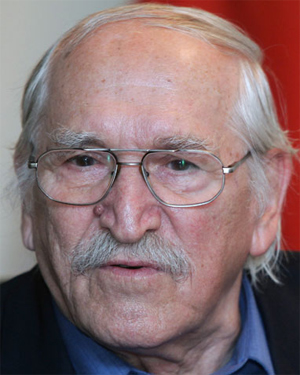 In the early 1950s while still a student, Dzhoko Rosic started work at Radio Sofia. Later he would become one of the most popular Bulgarian actors. “First, I was translator and presenter in the programs for Yugoslavia. I later spent a few years as editor at the central information service that provided content to foreign-language sections for broadcasts abroad. This content was the backbone of all programs.”
In the early 1950s while still a student, Dzhoko Rosic started work at Radio Sofia. Later he would become one of the most popular Bulgarian actors. “First, I was translator and presenter in the programs for Yugoslavia. I later spent a few years as editor at the central information service that provided content to foreign-language sections for broadcasts abroad. This content was the backbone of all programs.”
Immediately after the democratic changes in the country – in 1990, Alexander Vladkov (1936 – 2016) was appointed to serve as Bulgarian National Radio Director General. Vladkov had started his career at the German Language Section of Radio Bulgaria:
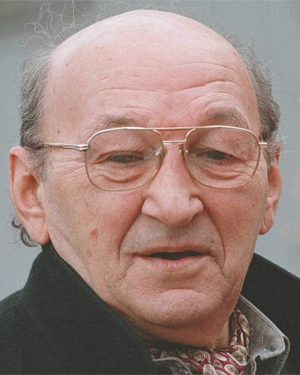 “This was an amazingly interesting job, and of course, I was forever enchanted by the Radio. Working for such a program requires a range of skills and professional training. Broadcasting to the world, we competed with local radio stations, on foreign ground. It is not enough to be a good editor, a good presenter with a nice voice but you needed other skills too – fluency in a foreign language and knowledge of the country that you broadcast to – in both historical, cultural and political terms.”
“This was an amazingly interesting job, and of course, I was forever enchanted by the Radio. Working for such a program requires a range of skills and professional training. Broadcasting to the world, we competed with local radio stations, on foreign ground. It is not enough to be a good editor, a good presenter with a nice voice but you needed other skills too – fluency in a foreign language and knowledge of the country that you broadcast to – in both historical, cultural and political terms.”
Radio Bulgaria was central to the career of Raina Konstantinova – she joined the service as member of the English Service in charge of correspondence with listeners, and then gradually progressed in the career hierarchy to become Radio Bulgaria Director, Deputy Director of the Bulgarian National Radio, and Director of the Radio Department at the European Broadcasting Union. Today Mrs. Konstantinova is the Chairperson of the BNR Public Council.
On the occasion of the 70th anniversary of Radio Bulgaria in 2006, Raina Konstantinova said the following:
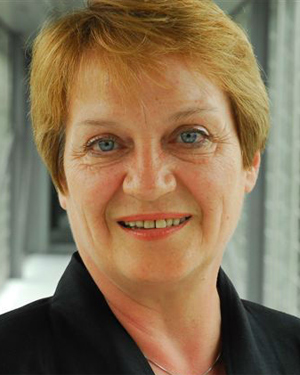 “Radio Bulgaria is not simply a part of the Bulgarian media; it is a unique institution with high standards of journalism. Radio Bulgaria is important for Bulgaria. To me personally Radio Bulgaria is much more than a workplace, a job, where one can learn a profession; it is the scene of tough characters and wonderful talents, a place where the world comes into touch with a genuine Bulgaria, with all its uniqueness and complexity.”
“Radio Bulgaria is not simply a part of the Bulgarian media; it is a unique institution with high standards of journalism. Radio Bulgaria is important for Bulgaria. To me personally Radio Bulgaria is much more than a workplace, a job, where one can learn a profession; it is the scene of tough characters and wonderful talents, a place where the world comes into touch with a genuine Bulgaria, with all its uniqueness and complexity.”
To respond to listeners’ interest from across the world, a special section was launched to compile programs for foreign stations which carried out a selection of thematic and music programs, recorded them on CDs and supplied them to radio stations, cultural and educational organizations and schools across the world. This department’s goal was to make sure that the voice of Bulgaria would be heard in the world, and many would learn more about this country in programs made in their languages. Of course, priority was given to programs aimed at Bulgarians abroad.
Today Radio Bulgaria no longer has radio transmissions and reaches its “listeners” via its webpages. The information that you can find here presents the most important events, the cultural and historical heritage, talented Bulgarians with achievements in science, art, music and sport. Radio Bulgaria speaks to the world again, but already in 10 languages and on the worldwide web.
Most mail with feedback that we receive accentuates the live connection that Radio Bulgaria keeps with the world with its narrative about the festive occasions, traditions, history and customs of Bulgaria, and about the achievements of the Bulgarian music culture. For the Bulgarians who live abroad Radio Bulgaria is a small fraction of the Bulgarian land they long for. Bravo for upholding the Bulgarian identity, thank you very much for keeping the spirit of the nation, of our Bulgaria, read some of their letters.
I am happy that Radio Bulgaria continues working, a Bulgarian from Spain wrote when some of the languages of Radio Bulgaria came under threat of a close-down a few months ago. We were supporting you all the summer because we need you!
Thanks a lot, Radio Bulgaria, for informing us about all important events on your webpage. It would be good to organize Bulgarian language courses. I am from the Bulgarian minority in Albania and would be happy if the Bulgarian Embassy in Albania organizes more events for the Bulgarian community, an Albanian user of Bulgarian descent has suggested.
I truly enjoy Radio Bulgaria History Club's contributions on facebook. They are most informative and to me personally a link with beautiful Bulgaria, the country I've learned to love so dearly, a user of the English language webpage wrote from the Netherlands.
I have lived my whole life in Brestovene, but when my children and grandchildren left for Germany to work I had to join them for three months to take care of my granddaughter and there too I kept listening to you. With every program I “traveled” back to my home village to “join” in my thoughts my dear neighbors with whom we used to listen to your interesting broadcasts. It was as though homesickness was not that bad. I am happy that you are around and I can listen to the songs of my youth, a listener of Radio Bulgaria’s broadcasts in Turkish wrote.
Thank you for the work you are doing! I have been living in Bulgaria for 5 years, and although I have been improving my language skills, I have been able to understand fully the meaning of your customs and traditions, as well as the latest news, thanks to you, a Chilean friend of the Spanish section wrote.
I regularly follow Radio Bulgaria’s website and, in my humble opinion, its ten rubrics are excellent. Thanks to them we receive worthwhile information about various important events. As far as I am concerned, I almost always go to the Life section, and I never miss Balkan Developments. Naturally, like everything in life, you can always do more and do it better, writes a user from Serbia.
Compiled by Darina Grigorova
English Daniela Konstantinova
Photos: archive